AUGUSTA — The lower level of South Parish Congregational Church is still under major renovation, and signs outside the rooms list items — fire doors, smoke detectors, microwave, coffee pot, books, pillows and blankets among them — needed to help turn the former nursery school space into the new Augusta Overnight Emergency Warming Center.

But Bobby-Jo Bechard, who toured the multiple-room space recently at an open house and fundraiser that drew about 50 people — many of them, like her, involved in providing services to people in need in the city — already sees it as a magical space.
Its most important act of “magic” will be to provide a low-barrier overnight shelter where the growing number of unhoused people in the area can find a safe, warm place to sleep on winter nights.
That, in turn, will ease some of the stress on service providers, several of whom said on some days the best option they could offer someone was a tent and a sleeping bag to hopefully get through the cold night.
“We’re not doing that this year,” Betty St. Hilaire, chairwoman of the Augusta Overnight Emergency Warming Center Advisory Board, said of turning people away due to a lack of space.
Bechard, program manager at LINC Center, a recovery and vocational center in Augusta offering peer counseling and other services, said the center has been packed most days, in part due to an increasing number of unhoused people coming there seeking help. She said the new shelter is a “godsend.”
The shelter will be open from Nov. 1 to April 30, from 7 p.m. to 7 a.m. every day.
And it will be low-barrier, meaning unhoused people who might be turned away at other area overnight shelters, for reasons including that they are under the influence of substances, on the sex offender registry or have mental health problems, will be able to stay the night, as long as they are not disruptive.

A sign listing items needed by the Augusta Overnight Emergency Warming Center is seen Wednesday during a tour of the shelter in the South Parish Congregational Church. Joe Phelan/Kennebec Journal

Betty St. Hilaire, chairperson of the Augusta Overnight Warming Center Advisory Board, speaks Wednesday during a tour of the Augusta Overnight Emergency Warming Center in the South Parish Congregational Church. Joe Phelan/Kennebec Journal
No children will be allowed to stay at the shelter. St. Hilaire said families that show up there with children will be assisted in finding somewhere to go.
The South Parish Nursery School, which previously occupied the space, is now upstairs in the church’s large building.
Bethany Sirabella, director of the nursery school, is confident the two uses can safely co-exist in their separate areas of the building at the corner of Bridge, State and Church streets.
About a month ago she sent an email to the families who send their children to the nursery school, letting them know about the plan to offer the church’s space for use as a homeless shelter and talking about the safety of the school’s children.
One family decided to pull their children from the school, which Sirabella said she understands. Also, two families with children in the nursery school were so supportive of the plan they donated items for its expected users.
The shelter and nursery school have separate entrances and don’t operate during the same hours, with the shelter closing at 7 a.m. and the school opening at 8:30 a.m.
The shelter will be operated by the church, where the congregation offered up the space for that use.
The Rev. Nathan Richards, pastor of the church, said at the Oct. 26 open house and fundraiser he was proud of the church community and the city of Augusta for taking a leap of faith to create the shelter.
He said the shelter needs both moral and financial support to be successful. Donations may be made by sending a check, made out to Augusta Overnight Emergency Warming Center, to South Parish Congregational Church at 9 Church St., Augusta, ME 04330.

Sleeping cots are seen during a tour Wednesday of the new Augusta Overnight Emergency Warming Center in the South Parish Congregational Church in Augusta Joe Phelan/Kennebec Journal
Sarah Miller, a leader of efforts to start the shelter, said it will likely get between 12 and 20 people a night. Miller is the executive director of Bridging the Gap, a nonprofit that runs a daytime winter warming center at another Augusta church, Emmanuel Lutheran Episcopal Church, and a member of the shelter’s advisory board.
In September, city councilors voted to use $124,000 from its allotment of federal American Rescue Plan Act funds to help open the shelter this winter. The proposal was also awarded a $30,000 grant from the United Way of Kennebec Valley.

Julia Stone of Waterville is the director of the new Augusta Overnight Emergency Warming Center in the South Parish Congregational Church. Stone said her position will be year-round, so when the winter shelter is closed, she’ll focus her attention on raising funds and applying for grants to keep the facility running. Joe Phelan/Kennebec Journal
But the federal funding was likely one-time. So one of the main tasks of the shelter’s new director, Julia Stone of Waterville, will be to seek grants to help keep the shelter going in future years. Stone said her position will be year-round, so when the winter shelter is closed, she’ll focus her attention on fundraising.
Stone was formerly the director of Peer Support Services for Amistad at Riverview Psychiatric Center. She said she took on the new job because she saw it as a challenge and there is so much need for a low barrier overnight shelter in the city.
“We’re trying to build something the community so desperately needs,” Stone said.
When the shelter is open Stone will work there, as will a couple other workers hired by the church, and volunteers. She said staff are trained in de-escalation.
They’ll also be trained in fire safety, part of an agreement with city codes and fire officials to allow the shelter to open this year, without a normally required sprinkler system.
Don Keneagy, a church member who oversees maintenance of the property, said city officials were great to work with and outlined things that need to take place at the shelter, such as staff being trained and having phones on them at all times, to allow it to open without the sprinklers yet in place.
Keneagy said the shelter will still need to add a sprinkler system, a costly proposition as he said it would cost an estimated $35,000 just to get a water line from the street into the building for the system, and another $80,000 or so to install the system.
Send questions/comments to the editors.


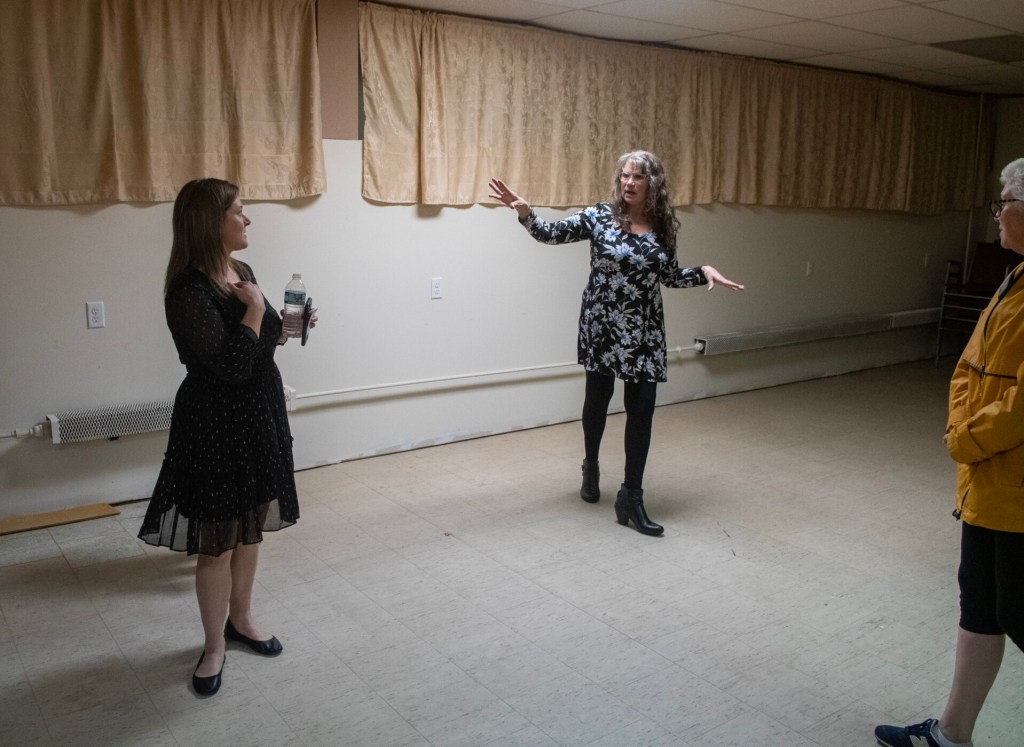
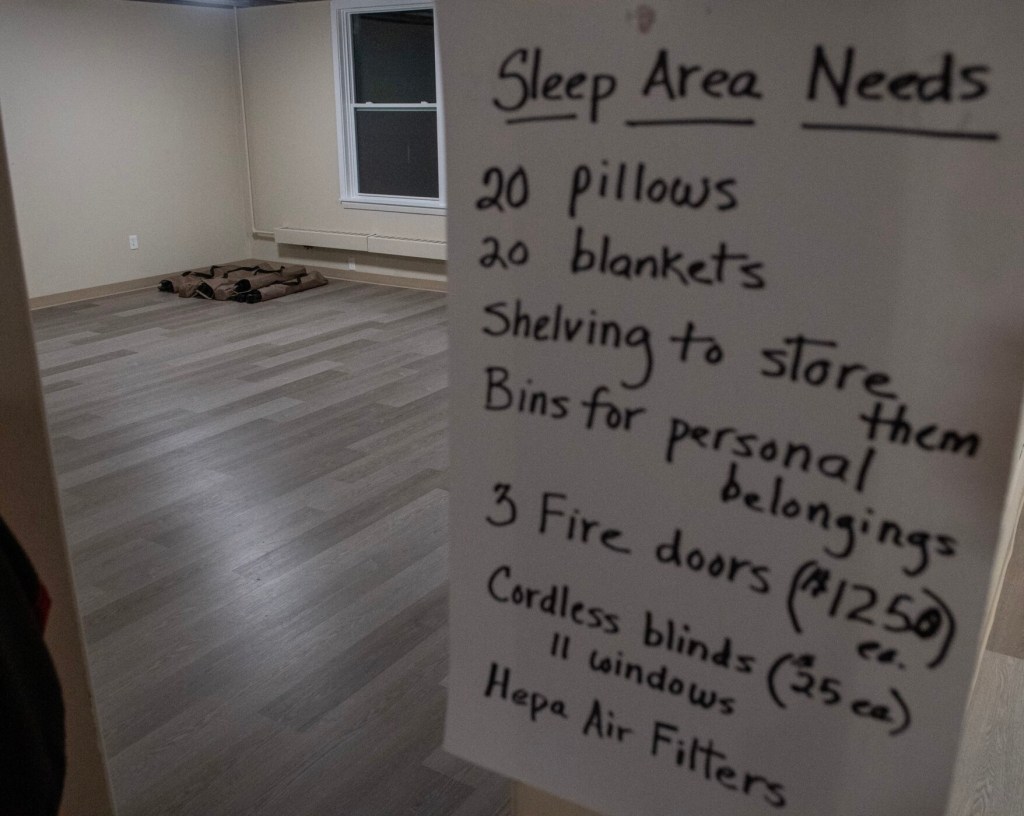
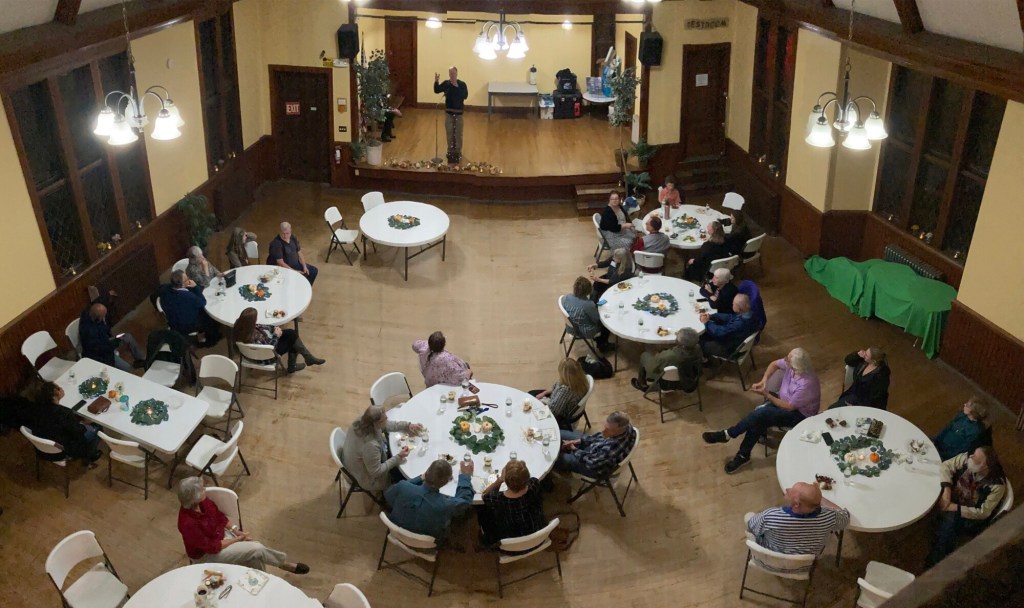
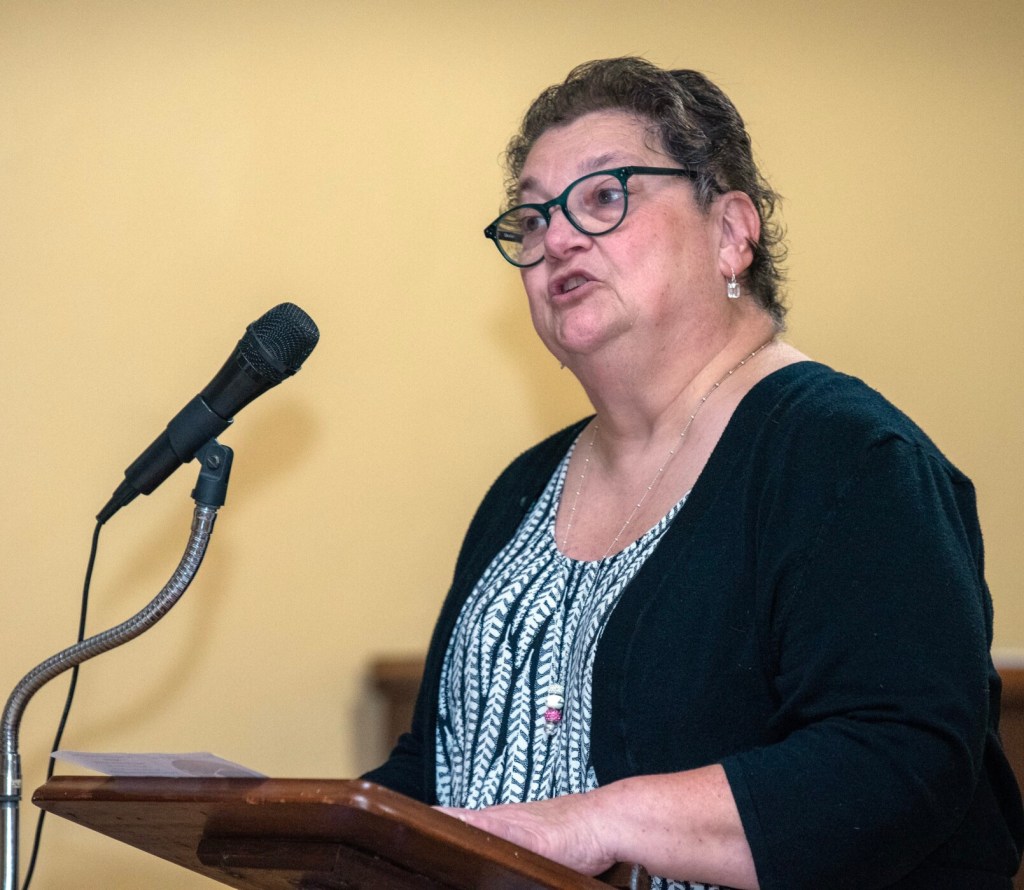
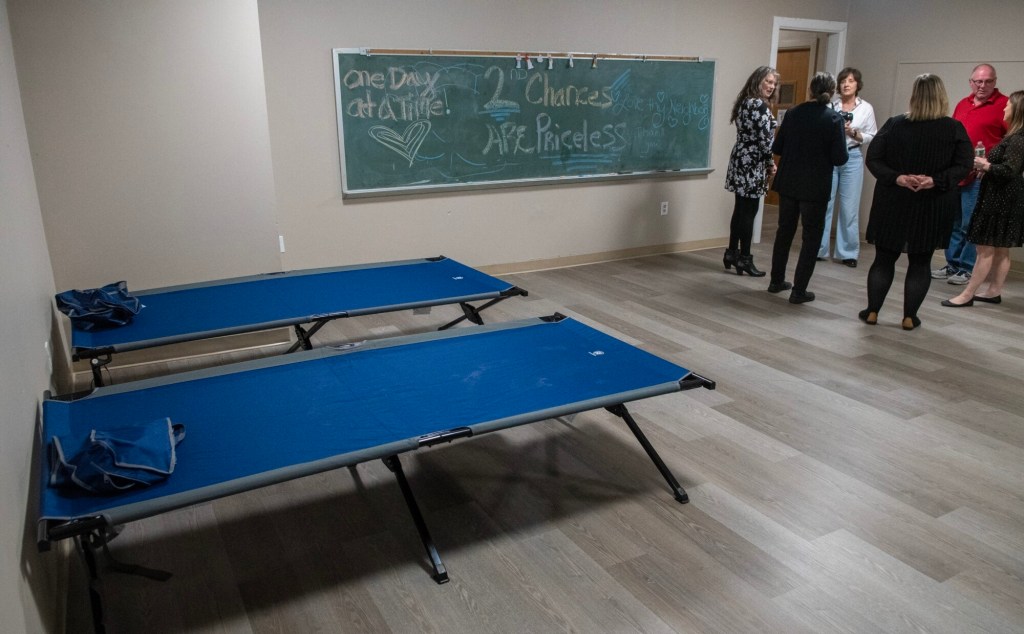

Comments are no longer available on this story